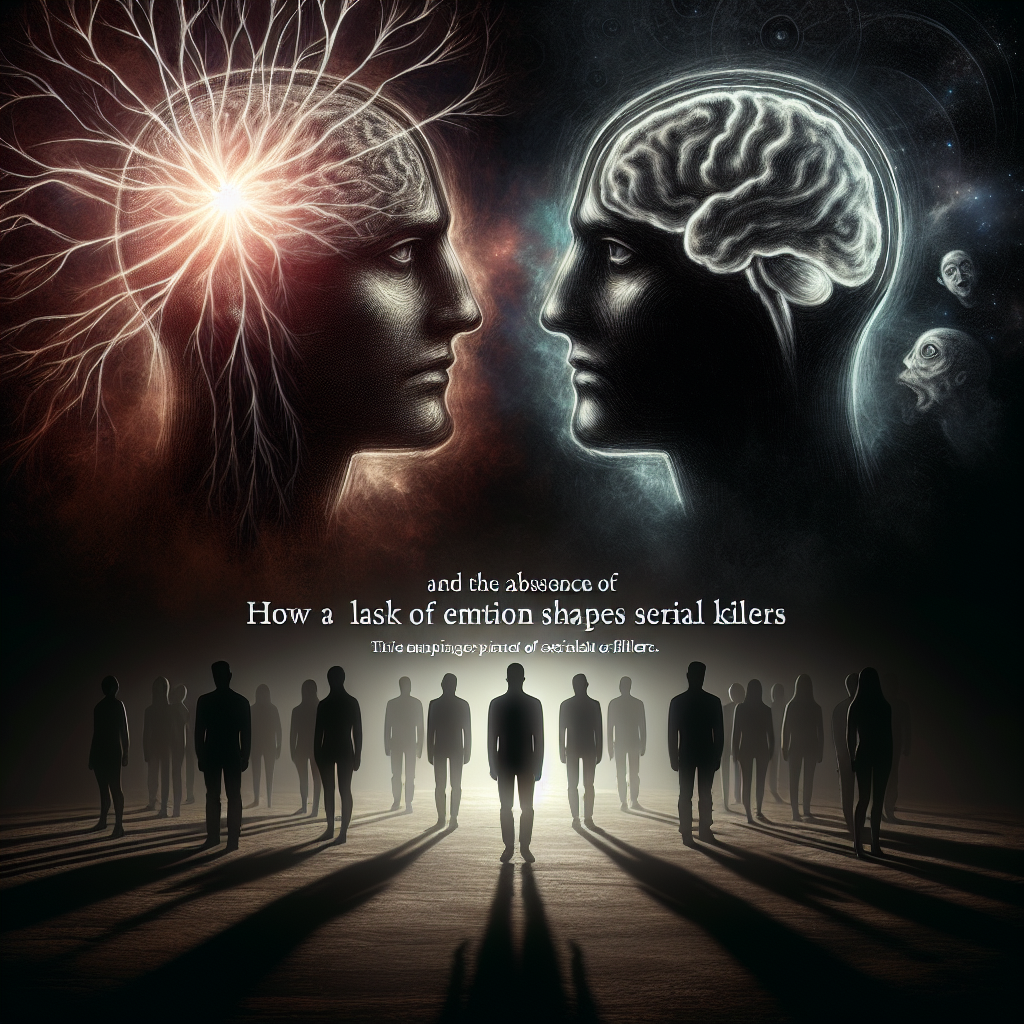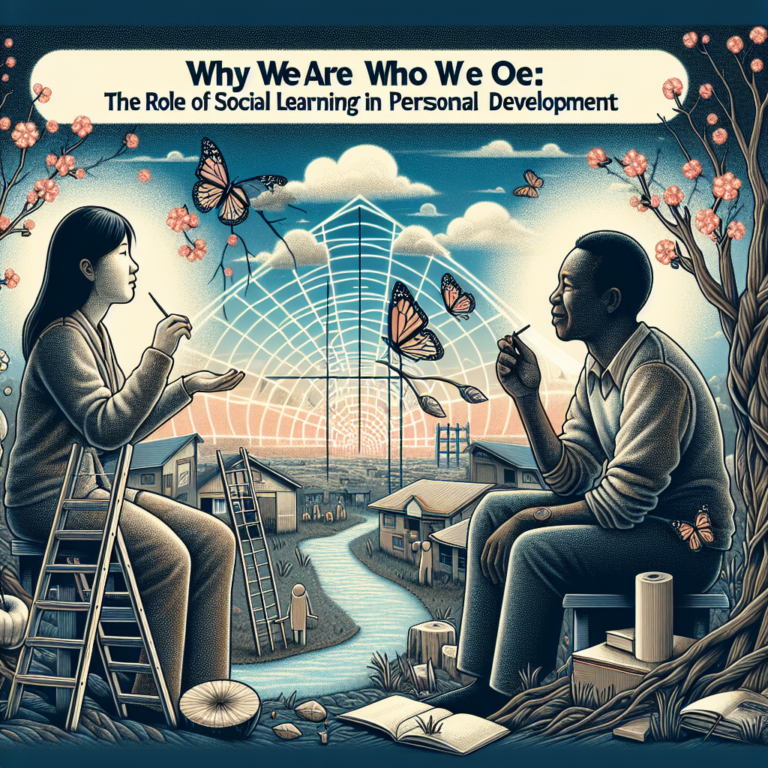
Introduction
The chilling phenomena of serial killers have long captivated our collective psyche, sparking debates in psychology, criminology, and even pop culture. Among the myriad factors that contribute to the development of these individuals, one stands out starkly: empathy—or rather, its absence. In this article, we delve into "Empathy and the Absence Of: How a Lack of Emotion Shapes Serial Killers," exploring the psychological, biological, and social nuances that contribute to this disturbing reality. The absence of empathy not only shapes the behavior of these individuals but also poses significant questions about human morality and society at large.
Understanding Empathy
What is Empathy?
Empathy is the ability to understand and share the feelings of another. It resides at the core of human interaction, playing a crucial role in relationships, moral decision-making, and community cohesion. There are two primary components of empathy:
- Cognitive Empathy: The ability to comprehend another’s emotional state.
- Affective Empathy: The capacity to physically feel what another person is feeling.
In healthy individuals, these components work synergistically to foster compassion and ethical behavior. However, a clear absence of either can lead to profound consequences.
The Importance of Empathy
Empathy is essential for a functioning society. It governs how we interact with friends, family, and even strangers. Studies have shown that heightened empathy correlates with increased prosocial behavior—actions intended to benefit others, such as altruism and cooperation. But what happens when empathy is lacking?
The Psychological Underpinnings
Developmental Factors
Many serial killers exhibit disturbing childhood experiences that contribute to their lack of empathy. From abuse to neglect, these formative experiences can cripple emotional development.
Case Study: Ted Bundy
Bundy’s early life was marked by fractious family dynamics and a highly dysfunctional upbringing. His ability to blend into society while harboring negative emotions exemplifies how childhood trauma can warp an individual’s capacity for empathy.
Neurological Correlates
Research has shown that neurobiological factors often play a crucial role in the formation of empathic abilities. Studies utilizing imaging technology like fMRI have revealed striking differences in brain activity among individuals with antisocial behavior.
| Brain Region | Function | Observed Differences in Serial Killers |
|---|---|---|
| Amygdala | Emotion processing | Reduced activity in empathy-related tasks |
| Prefrontal Cortex | Decision making, impulse control | Impaired function correlating with moral reasoning |
| Insula | Affective empathy | Abnormalities when exposed to others’ pain |
The findings reveal a common thread among many serial killers: a brain that fails to process emotional stimuli correctly.
Personality Disorders
Low empathy levels often coincide with certain personality disorders, such as Antisocial Personality Disorder (ASPD). Individuals with ASPD demonstrate a persistent pattern of disregard for the rights of others, often showing no remorse for their actions.
The Social Dimension
Societal Influence
A lack of empathy can also be exacerbated by environmental factors. Societal decay, media consumption, and social isolation can foster a culture that normalizes violence and dehumanizes others.
Case Study: Jeffrey Dahmer
Dahmer’s confession emphasized his disconnection from societal norms, viewing his victims as mere objects rather than human beings deserving of compassion. His upbringing in a tumultuous household combined with a media landscape filled with violent imagery shaped his worldview.
Peer Influence
The company one keeps can either nurture or stifle empathy. Research suggests that serial killers may surround themselves with likeminded individuals, further solidifying a lack of empathy as they reinforce harmful behaviors through group dynamics.
The Consequences of Absence
Impact on Relationships
A defining characteristic of serial killers is their inability to maintain healthy relationships. The lack of empathy poisons interactions, leading to manipulation, deceit, and eventual violence.
Case Study: Gary Ridgway (Green River Killer)
Ridgway’s relationships with women were predominantly rooted in control and power, devoid of emotional connection. His crimes highlight how a lack of empathy leads to grave consequences, affecting not only victims but also families and communities.
Societal Ramifications
The implications extend beyond the individual; society grapples with the consequences of these heinous acts. Communities are left in shock, prompting discussions about criminal justice reform and mental health resources.
Empathy and Prevention
Therapeutic Approaches
Understanding empathy’s role in criminal behavior opens avenues for intervention. Psychotherapy approaches such as Cognitive Behavioral Therapy (CBT) can work to instill empathic understanding in those at risk of developing antisocial behavior.
Building Emotional Intelligence
Programs geared toward emotional intelligence—from schools to community centers—are essential in fostering empathy from a young age. The earlier we cultivate these skills, the more likely we can mitigate risks.
Conclusion
In summary, "Empathy and the Absence Of: How a Lack of Emotion Shapes Serial Killers" underscores the complexity of human behavior. The intersection of psychological, neurological, and societal factors creates a multifaceted picture that challenges our understanding of morality and human connection.
By nurturing empathy on both individual and societal levels, we have the potential to influence behaviors positively. The call to action is clear: we must collectively strive to foster empathy to deter future violence, heal communities, and nurture a society built on compassion and understanding.
FAQs Section
1. What is the role of empathy in preventing crime?
Empathy plays a crucial role in moral decision-making and governs how we interact with others. Promoting empathy can deter criminal behavior by fostering understanding and compassion for others.
2. Can empathy be taught?
Yes, empathy can be developed through education and exposure to diverse life experiences. Programs focused on emotional intelligence have proven effective, especially in children.
3. What are some signs of low empathy?
Signs can include difficulty understanding others’ emotions, lack of remorse for harmful actions, manipulative behavior, and failure to maintain healthy relationships.
4. How do societal factors influence empathy?
Societal influences such as media consumption, peer pressure, and community support systems can amplify or diminish empathic responses, ultimately affecting behavior.
5. What are common traits of serial killers related to empathy?
Common traits include a lack of remorse, emotional detachment, difficulty forming genuine relationships, and a propensity for manipulative behavior.
The conversation surrounding "Empathy and the Absence Of: How a Lack of Emotion Shapes Serial Killers" is both complex and crucial. By understanding the factors that inhibit empathy, we can move towards strategies that prioritize emotional understanding and social responsibility, ultimately fostering a safer and more compassionate society.















